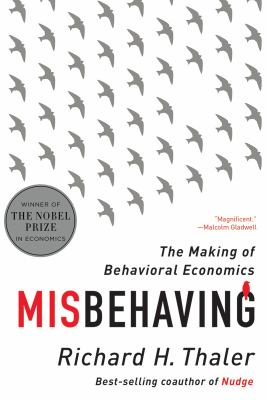
print
|
Misbehaving : the making of behavioral economics
Copies
1 Total copies, 1 Copies are in,
0 Copies are out.
Authors
Subjects
Language
English
Dimensions
25 cm.







